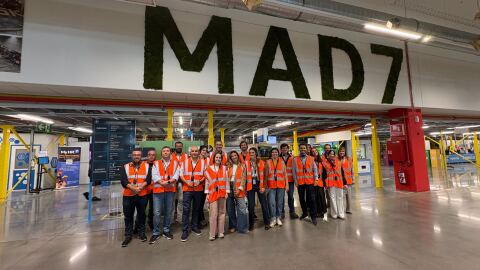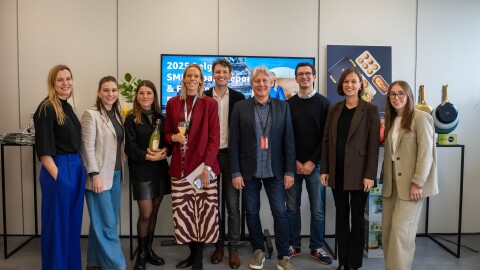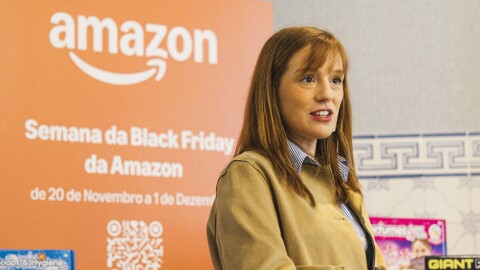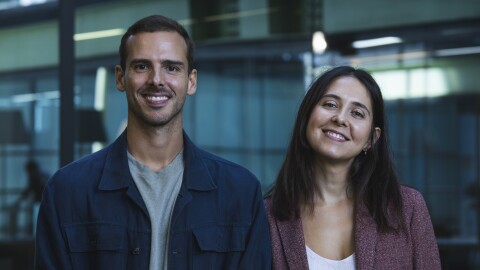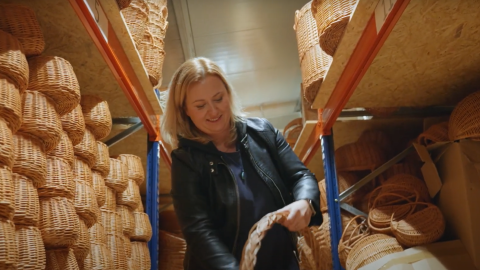TV is a large part of our daily lives. The average person in the UK spends a quarter of their waking life with their TV set. This used to be a passive, unsocial experience but the use of laptops, smartphones and tablets is transforming traditional lean-back TV entertainment into lean-forward interaction. British tech geek Malcolm Box and his company, Tellybug, have a lot to do with this.
After 10 years of working in the mobile phone business, Malcolm found the opportunity to start something new after he was unexpectedly made redundant. “In 2009 the large mobile phone company I was working for was acquired. After that, many people lost their jobs and I was one of them,” he explains.
This is far better than commuting to central London every day and finding myself stuck in traffic on the way home.
“Having worked for big businesses before, I wanted to do something for myself. The mobile world was getting more and more exciting, so I reached out to various former colleagues and friends to see if anyone would be interested in creating a new business in that field.” Shortly after that, Malcolm and his friends Matt Millar and Irwan Owen founded Tellybug with one objective in mind: making TV watching more interactive.
What can a small screen do for a big one?
Though five years ago smartphones and tablets were not as popular as today, Malcolm, Matt and Irwan saw these devices as the key for viewers to engage with TV shows. “We started testing the concept in conferences, where keynote speakers could interact with their audience via an app, and we then got our first TV customer, a small channel.” Nine months later, they found themselves working for one of the largest TV shows in the UK: Britain’s Got Talent.
“That was amazing,” says Malcolm with a smile. “It really was the right time for us to catch that wave” – a big wave in which the friends didn’t want to drown: “We originally built our technology for a few hundred people at a conference. Now our challenge was to make our app work for hundreds of thousands of people.” They found the solution to manage the increased traffic in the Amazon Web Services (AWS) cloud: “From the very beginning we used AWS for our technical infrastructure. The fact that it was elastic and affordable made it the obvious choice for us. When Britain’s Got Talent arrived, we knew that on the technical front we would be OK: we just had to add more services and server capacity.”
From 5,000 to 500,000 in two minutes
Today, Tellybug’s mobile apps are making many TV shows, including The Voice and The X Factor, more interactive by allowing viewers to answer poll questions, rate performances, complete show quizzes or make predictions on who will go through to the next show.
Building on top of AWS’s global infrastructure, Malcolm and his seven-person team in the UK now work with the biggest broadcasters in the world, as well as with customers throughout Europe, the Middle East and Asia. Up to half a million users have been simultaneously connected to their apps.
“We have massive peaks during the weekend, when most of the TV shows are aired. When the presenter invites the audience to play and participate with our apps, we see the traffic increasing from a few thousand to hundreds of thousands of connected users in just a couple of minutes. The volume of traffic is massively diverse, and that’s why the hosting flexibility is essential for us. Without the scalability that the AWS cloud computing allows, our business could not exist.”
Virtual team conquers the waves
Tellybug has grown into a team whose members also work ‘in the cloud’. “We don’t have an office: I live in London but my team is spread across Britain. We meet virtually every morning on Skype, and in person a few times a year,” explains Malcolm. As a father of three children, one of whom was born just before the launch of the Britain’s Got Talent app (“that was pretty hectic”), Malcolm values the family time that the flexibility of working remotely allows. “This is far better than commuting to central London every day and finding myself stuck in traffic on the way home.”
When asked about his decision to start his own business, Malcolm says: “Wow. I am really happy that I did. There’s definitely been challenges along the way and days in which I questioned my sanity and wondered ‘why didn’t I settle for a safe job where money is guaranteed to come in?’ But having the chance to run your own business the way you want and to grow a team is a great experience. And the feeling of watching The X Factor judges using our app on TV, finding our apps at the top of the app shop… all of that has been truly amazing.”



